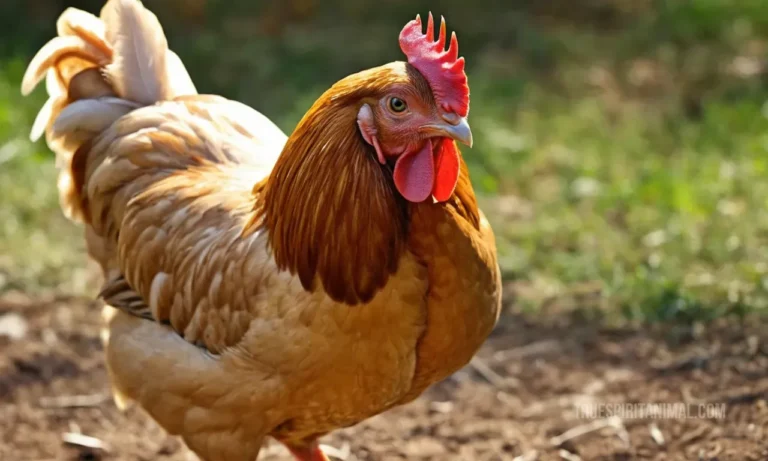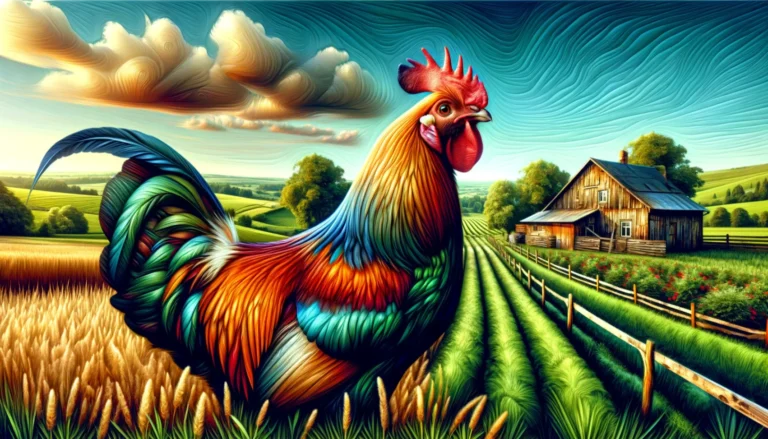Yokohama Chicken Symbolism and Meaning

Introduction:
The symbolism behind the Yokohama Chicken is deeply rooted in Japanese culture, history, and folklore. This chicken breed has a rich history dating back centuries, representing various attributes such as courage, resilience, and prosperity. Its unique physical characteristics make it an essential part of Japan’s agricultural heritage. In this article, we will delve into the Yokohama Chicken’s symbolism, its meaning in Japanese folklore, and how it has become a significant aspect of cultural identity.
Yokohama Chicken Symbolism:
The Yokohama Chicken is named after the city of Yokohama, where it originated. Known as “Kuraku” or “Black Chickens,” these birds have black feathers and white earlobes, making them easily distinguishable from other chicken breeds in Japan. They’re known for their docile nature and exceptional egg-laying capabilities. The Yokohama Chicken holds immense cultural significance due to its historical importance and symbolic representation. Here are some key aspects of this bird:
Resilience: Yokohama chickens are known for their resilience in harsh weather conditions, adaptability to diverse environments, and strong immune systems. They’ve survived natural disasters such as earthquakes, typhoons, and other calamities, showcasing strength and survival instincts. This characteristic makes them symbolize resilience and perseverance in the face of adversity.
Prosperity: The Yokohama Chicken’s ability to lay eggs year-round reflects abundance and fertility, making it a symbol of prosperity in Japanese households. Many families keep these chickens for their economic stability through egg production. Thus, they represent wealth and growth within the community.
Yokohama Chicken Meaning:
- Bravery: The Yokohama Chickens’ fighting spirit is another significant aspect of its symbolism. In Japanese culture, bravery often correlates with the ability to adapt to changes and persevere in difficult situations. These chickens embody this trait through their survival skills during natural disasters and harsh climatic conditions.
- Symbolic Connection: The Yokohama Chicken is a representation of Japan’s agricultural heritage, symbolizing pride in traditional farming methods passed down for generations. They represent the nation’s connection to rural life and respect for nature.
- Protection: As guardians of farms, they protect other poultry from predators, signifying security and safeguarding values in Japanese culture.
- Fertility: Their ability to lay eggs throughout the year symbolizes continuous growth and abundance, promoting a sense of sustainability and stability for households.
- Beauty: The bird’s sleek black feathers showcase elegance and grace, linking aesthetics with practicality.
Comparison Table:
| Aspect | Yokohama Chicken Symbolism | Meaning |
| —————– | ——————————– | ——- |
| Resilience | Survival in adversity | |
| Prosperity | Economic Stability and Abundance |
| Cultural Heritage | Pride in Traditional Agriculture |
| Protection | Security and Safeguarding |
| Fertility | Sustainable Growth |
| Aesthetics | Elegance and Grace |
Conclusion:
The Yokohama Chicken carries immense symbolic weight due to its qualities, making it more than just a domestic animal. Its resilience demonstrates Japan’s survival instincts while its egg-laying represents prosperity. It embodies cultural heritage, reflecting the connection between nature and agriculture. The bird also protects other poultry, symbolizing security and stability in rural communities. Finally, their beauty signifies aesthetic value appreciated by farmers and consumers alike. Understanding these meanings enriches our perception of this chicken breed, highlighting its importance beyond practical use.





